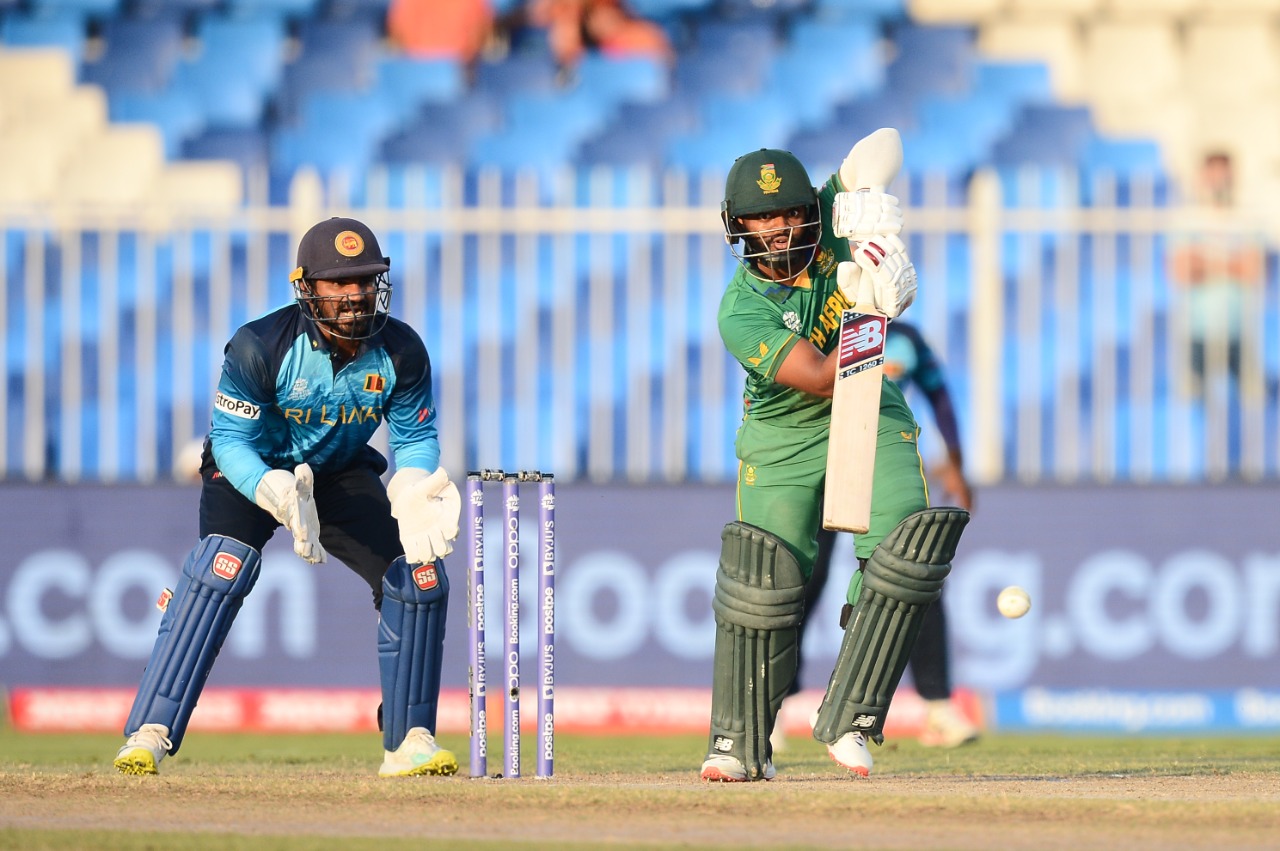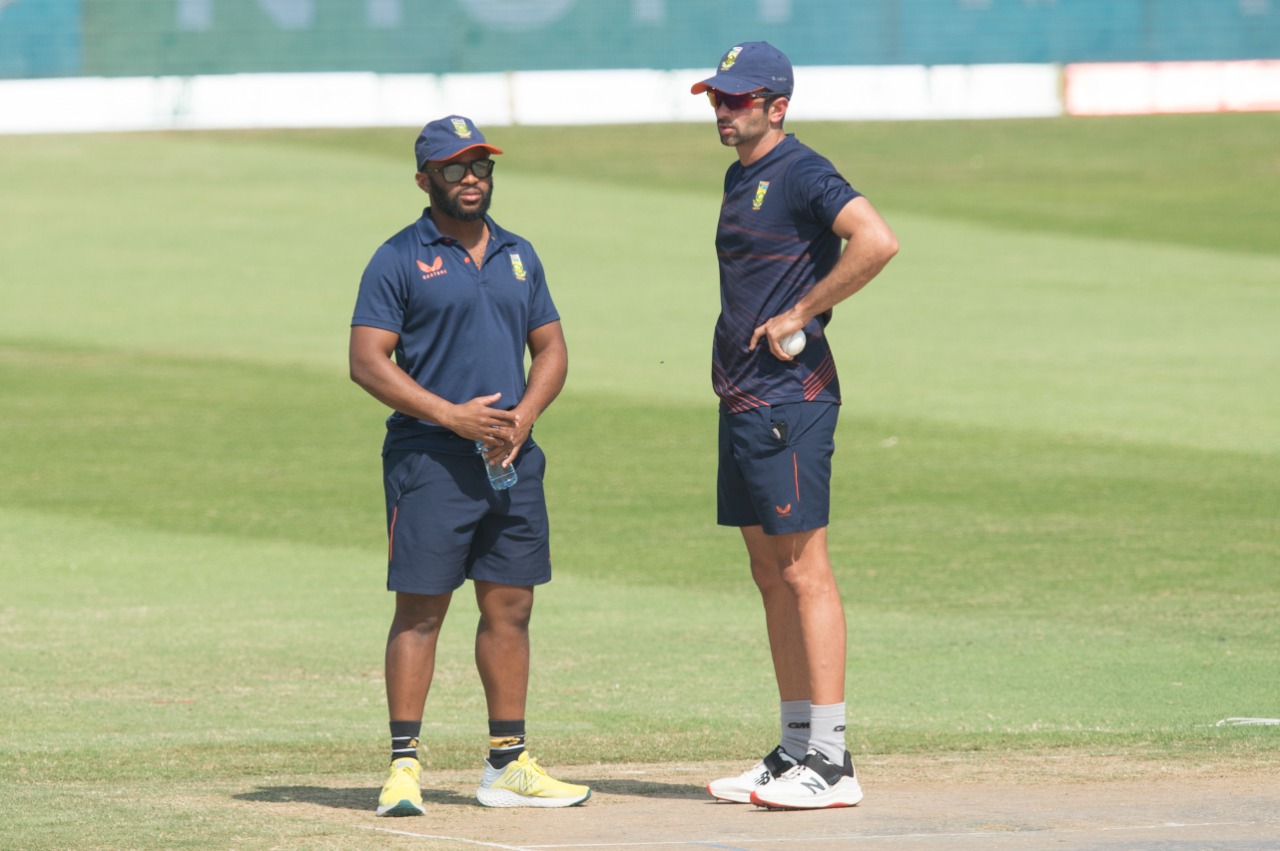 OPINION
OPINIONCricket is a sport for everyone, but the modern T20 batter comes with few tropes attached. Wiry stature, high backlift, strong wrists and an arsenal of shots. If South African skipper Temba Bavuma can be weighed against these tropes, he might tick some of the few. At 5 feet 3 inches, he isn’t physically imposing nor does he blitz bowling attacks at the drop of a hat. In T20Is, he has a strike rate of 123.09 and an average of 27 which are not outstanding for someone who has played 20 matches so far.
In the 2021 T20 World Cup, Bavuma’s scores read 12, 2, 46, 28 – a total of 91 at a strike rate of 108.3. If effectiveness could be gauged through filtering spreadsheet columns, the Proteas captain would find himself somewhere in the middle. Add high stakes and real-time match situations, his innings, especially the latter two against Sri Lanka and Bangladesh, would be at the top of the pile.
The bowlers had done enough to restrict Sri Lanka to 142 in 20 overs. Dushmantha Chameera sent back both the openers Quinton de Kock and Reeza Hendricks in the fourth over. Some frantic running between the wickets saw Rassie van der Dussen run out in the eighth over. Scoring 94 from 72 balls on a holding Sharjah surface under sultry weather was a big enough challenge.
The premium price on boundaries meant, Bavuma had to push himself and Aiden Markram to do the hard yards. Just three boundaries came off the next 35 balls, but running the unsure doubles and singles kept South Africa in the game. The required run-rate crept over 10 after Markram’s dismissal in the 15th over and a boundary was much needed. Chameera steamed in, pitched a length ball on the pads. A swift roll of the wrists from Bavuma and the ball went soaring over deep fine leg. When he departed as one of Wanindu Hasaranga’s hat-trick wickets after scoring a run-a-ball 46, South Africa required 31 off 17 balls. Kagiso Rabada and David Miller got them over the line in a thrilling fashion, but Bavuma’s 46 kept the game alive until the cavalry arrived.

Against a beleaguered Bangladesh, chasing 85 on a quasi-South African pitch in Abu Dhabi proved to be a struggle for South Africans. Taskin Ahmed trapped Hendricks in the first over while Mahedi Hasan foxed de Kock very soon. Taskin then produced a cracking nip-backer to dismiss Aiden Markram for a duck. At 33/3, Rassie van der Dussen batted like his shoulders were frozen.
On a minefield for batting, Bavuma just seemed to have the know-how. He stepped out of the crease often to cut off the movement and prioritised placement above brute force. Two threes and a double came that way, while anything offered on width was threaded through the in-field. His unbeaten 31 not out from 28 balls was a demonstration to Van der Dussen, who was playing T20 cricket in UAE for the first time, about adaptability.
As unappetizing as these two innings would seem to T20 purists, Bavuma’s contributions kept South Africa alive in the competition. The result-oriented approach without fussing about individual swagger has been the hallmark of this Proteas side under Bavuma’s captaincy.
“With Temba ... the results are there. There is nothing more to say about that,” Rabada said after the Bangladesh win.

When he took over the white-ball captaincy in March, South Africa had lost three home series and one away in the sub-continent. Since then, they equalled the country’s best run in T20Is with seven consecutive wins across three away series. The streak included three wins over Sri Lanka in July when a freak thumb injury ruled Bavuma out of the series. Left-arm spinner Keshav Maharaj captained the team on his T20I debut and led them to a series win. Unlike the previous generations of South African teams where seniors and their star power prevailed over everything, the leadership is decentralised among each department.
When de Kock opted out of the West Indies match, Heinrich Klaasen proved to be a good enough wicketkeeper with a catch and a run-out. When Rabada was struggling with his economy at the beginning of the World Cup, Dwayne Pretorius and Anrich Nortje filled in for him.
During this World Cup, his instinctive decisions have paid off quite well for South Africa. In the match against Australia, sensing David Warner's discomfort, he persisted with Rabada for three overs inside the powerplay which fetched the opener’s wicket. With Hendricks and Van der Dussen doing well in the practice game, he moved down the order which proved to be a safety net for the team when the youngsters were unable to perform.
Whether South Africa can pull through the group stages will be revealed on Saturday (November 6), but Bavuma’s personality in the dressing room and cricketing smarts on the field, have been the much-awaited change.